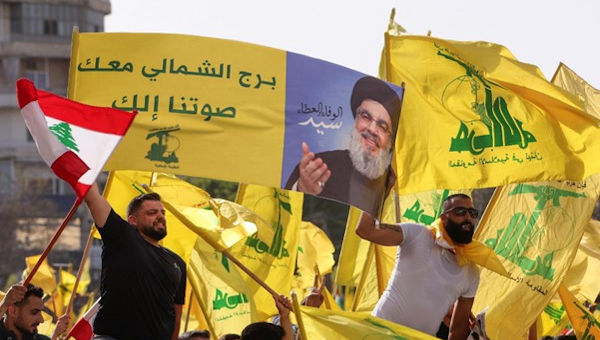
Dissertation Projects
Student Sadeen Haddad based her dissertation on the research she did with the Peace Lab.
Current PhD student Sadeen Haddad's MA dissertation was on "The continuing effects of peace-processes on militia group sustainability: the case of Hezbollah."

Sadeen says "During my MA, I took part in numerous Peace Lab workshops. I found these to be invaluable to my dissertation research, as they were centred around supporting students in designing their dissertation posters for the Peace Lab Launch, and included highly insightful conversation with, and feedback from, different academics.
My involvement with the Peace Lab both strengthened my ability to concisely present large sums of information and explain my argument to academic and non-academic professionals – including academics from the Jimmy Carter School for Peace and Conflict Resolution and professionals from the US Embassy, as well as continuously revise my own research and ideas for my thesis.
Further, the Peace Lab was a great opportunity to engage with academics and practitioners in Peace and Conflict and understand, through first-hand accounts, the complexity of working in applied politics.
This furthered my understanding on how we can continue to strengthen the ties between academia and applied politics, and further cemented my interest in pursuing a PhD in this field."
Sadeen's aim with her dissertation was to explore how continuing social relations and peace-process policy applications/discussions affect hybrid political-militia groups such as Hezbollah.
.jpg)
Sadeen's research for her dissertation was based around three questions:
Research questions:
- What key continuing social dynamics from the Lebanese civil war (and through Taif) are important to understanding Hezbollah? Are there points in the post-war era that international dynamics take precedence over domestic ones?
- Why is the lens of rebel governance particularly useful to understanding the role of Hezbollah?
- What implications does this have for our greater conceptual understanding on the long-lasting effects of peace-processes?
Key context
The historical role of sectarianism in Lebanese politics and society; Hezbollah’s social positioning during the war period
- Socio-political dynamics at play during the post-war period; the nature of the 1989 Taif Agreement
- Implementation or ‘lack of’ of peace agreement in the post-war period; Hezbollah’s dual-strategy as a key state actor and regional militia.
Methodology
The project utilised process-tracing as the primary research method, to best understand how certain process around the 1989 Taif Agreement contributed to Hezbollah’s form of rebel governance, but equally what aspects of the process did not impact or limit Hezbollah’s emergence i.e. what the peace process contributed to but equally where it defaulted.
